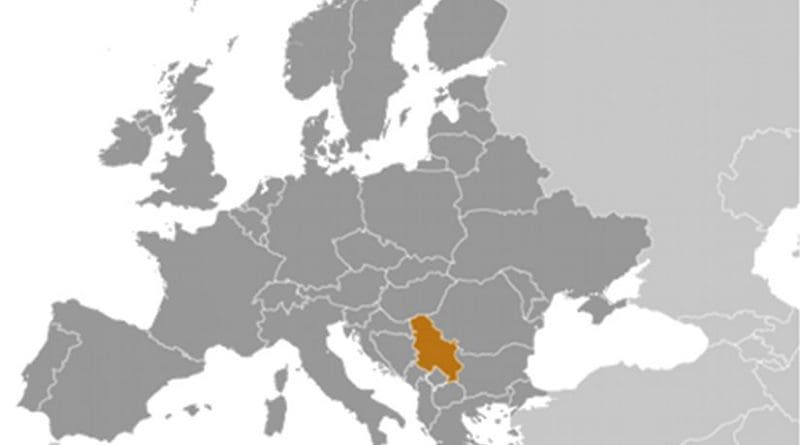Serbia: President Slammed For Meeting Bosnian War Criminal
By Eleanor Rose
Serbian President Tomislav Nikolic’s meeting on Wednesday with former Bosnian Serb parliament speaker Momcilo Krajisnik, who has served a sentence for war crimes, was met by anger from rights groups in Bosnia and Serbia.
The meeting in Belgrade was criticised because Krajisnik was jailed in 2009 by the International Criminal Tribunal for the Former Yugoslavia for crimes against humanity, including the persecution and deportation of non-Serb civilians from ten Bosnian municipalities.
Nikolic’s office said in a statement that he and Krajisnik, along with another guest, the President of the Serbian National Council of Montenegro, Slobodan Remetic, discussed “ways to improve cultural ties of Serbian people in the former Yugoslavia region, with emphasis on the status and protection of human rights of Serbian people in countries in the region, as well as the protection of Cyrillic and the Serbian language”.
Krajisnik, who met Nikolic in his role as head of the Association of Creators of Republika Srpska, presented Nikolic with a plaque commemorating the 1991 founding of the Bosnian Serb assembly, which then became the Republika Srpska parliament before the war broke out in 1992.
He was released in 2013 after serving two-thirds of his 20-year sentence, and received a hero’s welcome when he returned to the Republika Srpska town of Pale.
The Youth Initiative for Human Rights in Serbia said in a statement that the meeting was “a step further” in the denial of war crimes after the heightened nationalist rhetoric that accompanied celebrations on Monday to mark the Day of Republika Srpska – a Bosnian Serb public holiday that was banned by Bosnia’s Constitutional Court.
It said this was a reminder that Serbia is “facing the beginning of the presidential campaign, and that Nikolic will run in the election [in April] with a warmongering policy”.
Rights groups in Bosnia also expressed concerns.
“[The meeting] should be an alarm for the international community, especially after Nikolic’s presence at the pompous and unconstitutional celebration of the Day of Republika Srpska on January 9 in Banja Luka,” Belma Vulcic, speaking for the Bosnia branch of NGO Society for Threatened Peoples International, told BIRN.
Vulcic said Nikolic’s meeting with Krajisnik showed a worsening in the stances of some senior Serbian officials towards the integrity of Bosnian state institutions.
“Unfortunately, Nikolic’s action represents a continuation of the policy of denial and destruction of the internationally recognised and sovereign state of Bosnia and Herzegovina, and a particular kind of mockery of official institutions and representatives of the [Bosnian] state,” she said.
“Instead of appropriately using the special ties between Serbia and Republika Srpska to further economic and cultural prosperity, he, under the cover of these special relations, does everything so that Bosnia and Herzegovina would be torn apart, and so that its smaller part, Republika Srpska, can finally be annexed to Serbia,” she added.
President Nikolic’s attendance at the Day of Republika Srpska on Monday was one of its particularly controversial aspects.
During a speech on Monday evening, Nikolic fomented concerns by congratulating the Bosnian Serbs on holding a referendum on the Day of Republika Srpska, which was also banned by the country’s Constitutional Court, saying those who had tried to intervene in the celebrations “hate our saint”.
His comment was a reference to the fact January 9 is a Serbian Orthodox church holiday to mark the day of the patron saint of Serbia, St Stephen; the religious aspect of the celebration was the reason given when the Constitutional Court banned it as a national holiday, saying it was discriminatory against non-Serb citizens of Republika Srpska.

